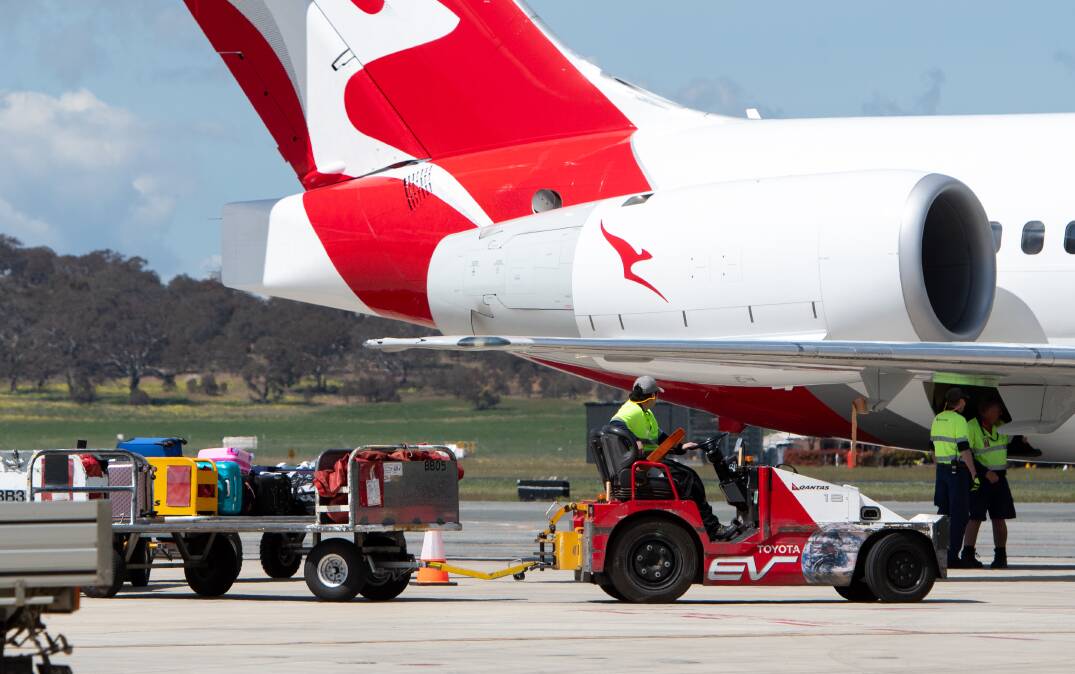Qantas has dramatically improved its Canberra-Sydney service after a continual public relations battering for the high level of cancellations earlier in the year.
On the latest figures, 3.2 per cent of its scheduled flights between the cities were cancelled in November - well down from previous months when a 10 per cent cancellation rate was common.
At one stage in the winter, 12 per cent of Canberra-Sydney flights were cancelled, the worst rate of all Qantas' services anywhere in Australia.
But November's figures were startlingly better. "Thank you Qantas for delivering," the chief executive of Canberra Airport Stephen Byron said. "There's been a change."
"It's a great result for customers. Thank you to Qantas and to the new CEO for making the change."

It was a complete change in his tone from when he would lay into the national flag-carrier month in and month out as each new set of dismal official figures for the route were published.
The change in performance follows a change at the top of Qantas.
Its previous chief executive Alan Joyce left under a cloud in September, amid swirling revelations that Qantas had sold thousands of tickets for flights it knew it had already cancelled.
He was replaced at the top by the airline's chief financial officer Vanessa Hudson who promised to restore the airline's image.
The airline said at the time that words would be matched by actions. "We are particularly focused on bringing down cancellations on flights between Sydney and Canberra and the measures we have put in place over the past few months are helping," a spokesperson told The Canberra Times.
The new broom at the top of Qantas now seems to have matched her promises with delivery. In November, Qantas and QantasLink scheduled 838 flights between Sydney and Canberra. Of those, only 27 failed to take off.
Qantas said it had put a special effort into the route. "We have been focused on reducing the unacceptably high number of cancellations on Canberra-Sydney flights, and the measures we have put in place have seen cancellations reduce over recent months.
"We know how important it is for all customers travelling to and from Canberra to get where they need to be on time."
Its defence in previous months was that there were frequent flights between the two cities so a cancellation usually didn't mean a delay of more than an hour (to which Mr Byron would say that a delay of an hour still meant missed meetings, and passengers needed certainty).
It may be that Qantas has simply decided not to cancel so many flights. But it has also changed its aircraft.
Since October, Boeing 737s have taken some of the burden from the Dash 8 propeller aircraft.
Either way, Mr Byron was pleased. "What I care about is the right result for the customers," he said.







